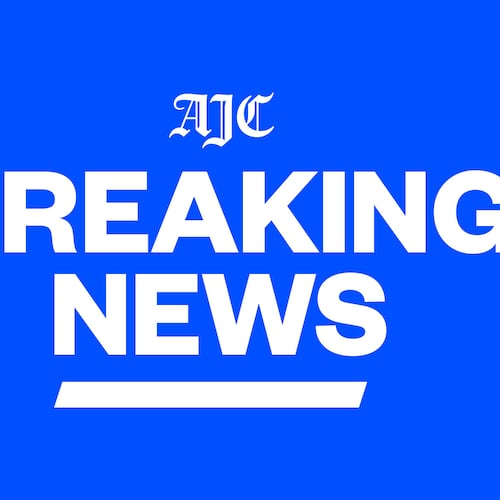One block away from the intersection where seven people were injured early Thursday morning in a drive-by shooting yet another luxury apartment complex is taking shape in Atlanta’s historic Old Fourth Ward.
Novel O4W boasts a yoga terrace, an outdoor dog run and a saltwater pool. Trendy Ponce City Market, a virtual monument to gentrification, is within easy walking distance.
But as development creeps ever closer, Boulevard, namely the half-mile stretch of land from Ponce de Leon Avenue to Wellstar Atlanta Medical Center, remains virtually unchanged. Many of the buildings are in disrepair. Most of the residents are poor. A Family Dollar store anchors the strip mall where Thursday’s shootout took place. Here, you’ll find liquor stores and laundromats, not coffee houses and dry cleaners.
RELATED:
Police say drive-by shooting that left 7 injured was gang-related
Underlining all this is a crime problem that continues unabated in one troubled area even as those around it have prospered. Police believe Thursday’s shooting was gang-related; all seven victims are expected to survive. But the carnage drew a hasty response from law enforcement, who held a news conference to assure city residents they were on the case.
The drive-by single-handedly accounted for a nearly 50 percent leap in shootings this year in Zone 6. There had been 15 until then; now there are 22, about even with last year at this time.
“The neighborhood itself is somewhat challenged,” said Atlanta Police Department Maj. Michael O’Connor, commander of the major crime unit. “This particular series of apartment complexes that stretches for awhile, that’s been the case since I joined the Police Department.”
Most of those federally subsidized apartment units — roughly 700 in all — along Boulevard are owned by Massachusetts-based Wingate Management Co. Over the past decade, there’s been a considerable discussion about what to do with Boulevard, but any change will be dependent on Wingate, which has owned the buildings since the 1970s.
Representatives from Wingate could not be reached for comment.
“I was really thinking that we could have something special there,” said longtime community activist Mtamanika Youngblood. “Something that is special and different, where affluent and non-affluent people could live together. Now, I’m not so optimistic.”
Credit: Jenni Girtman
Credit: Jenni Girtman
The hope was the area, home to generations of black, working-class residents, would be revitalized, not gentrified, Youngblood said. But instead the black population has declined in the Old Fourth Ward/Sweet Auburn Neighborhood Statistical Area. As late as 2000, 76% of the population was African-American. In 2015, it dropped to under 50 percent.
Affordable housing remains an issue for the city, as the development boom that continues around the Beltline has catered almost exclusively to the well-heeled. In the Old Fourth Ward, the average sale price of a home more than doubled from 2013 ($280,000) to 2018 ($660,000).
But while the poor still have a home on Boulevard, their quality of life remains poorer still.
“Yes, it’s affordable but it’s not safe or decent,” Youngblood said. “This is concentrated poverty. What do you expect to be the outcome?”
Atlanta police admit that crime on Boulevard — fueled by drugs, dominated by gangs — is a problem they’ve yet to contain.
“It’s an ongoing effort and has been for decades now,” O’Connor said. “We do everything we can but as you know people replace other people. Every time we make an arrest it feels like someone backfills that person.”
Residents say they live under siege. In the wake of Thursday’s shooting few would go on record to discuss the conditions in their neighborhood, lest they be targeted.
“I stay off the streets at night,” said R.C. Johnson, 68. “Our mayor needs to address this. We need more police patrolling the neighborhood. I see them riding up and down the street in their cars but they need to get out on foot.”
Later this year, a new mini-precinct is expected to open next to the Family Dollar. But the problems that beset Boulevard are unlikely to go away.
“I don’t know what the future holds,” Youngblood said.
Despite its problems, Boulevard remains prime real estate, with soaring views unequaled in most of the city connecting Midtown to downtown. Yet development has been sparse, save for 555 Boulevard, a 120-unit, six-story development scheduled for completion in 2020.
Most likely, said Youngblood, Boulevard will remain as is for the foreseeable future.
“Boulevard is at the mercy of a company out of (Massachusetts) and obviously this is working for them,” she said.
About the Author
The Latest
Featured




